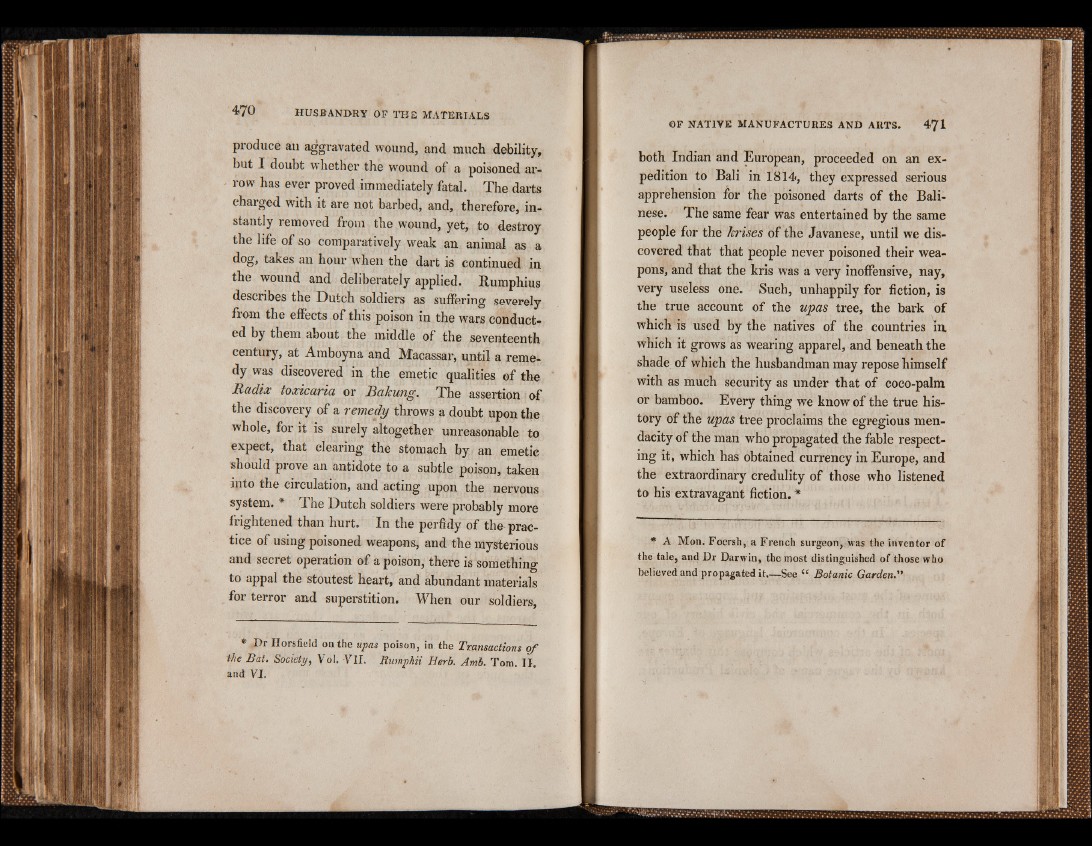
produce an aggravated wound, and much debility,
but I doubt whether the wound of a poisoned arrow
has ever proved immediately fatal. The darts
charged with it are not barbed, and, therefore, instantly
removed from the wound, yet, to destroy
the life of so comparatively weak an animal as a
dog, takes an hour when the dart is continued in
the wound and deliberately applied. Rumphius
describes the Dutch soldiers as suffering severely
from the effects of this poison in the wars conducted
by them about the middle of the seventeenth
century, at Amboyna and Macassar, until a remedy
was discovered in the emetic qualities of the
Radix ioxicaria or BttJcung. The assertion of
the discovery of a remedy throws a doubt upon the
whole, for it is surely altogether unreasonable to
expect, that clearing the stomach by an emetic
should prove an antidote to a subtle poison, taken
into the circulation, and acting upon the nervous
system. * The Dutch soldiers were prohably more
frightened than hurt. In the perfidy of the practice
of using poisoned weapons, and the mysterious
and secret operation of a poison, there is something
to appal the stoutest heart, and abundant materials
for terror and superstition. When our soldiers,
* Dr Horsfield on the upas poison, in the Transactions o f
the Bat. Society, Vol. VII. Rumphii Herb. Amb. Tom. IF.
and VJ.
both Indian and European, proceeded on an expedition
to Bali in 1814, they expressed serious
apprehension for the poisoned darts of the Balinese.
The same fear was entertained by the same
people for the krises of the Javanese, until we discovered
that that people never poisoned their weapons,
and that the kris was a very inoffensive, nay,
very useless one. Such, unhappily for fiction, is
the true account of the upas tree, the bark of
which is used by the natives of the countries in.
which it grows as wearing apparel, and beneath the
shade of which the husbandman may repose himself
with as much security as under that of coco-palm
or bamboo. Every thing we know of the true history
of the upas tree proclaims the egregious mendacity
of the man who propagated the fable respecting
it, which has obtained currency in Europe, and
the extraordinary credulity of those who listened
to his extravagant fiction. *
* A Mon. Foersh, a French surgeon, was the inventor of
the tale, and Dr Darwin, the most distinguished of those who
believed and propagated it.—See “ • Botanic Garden.”